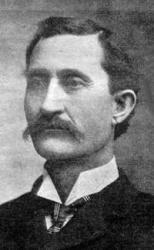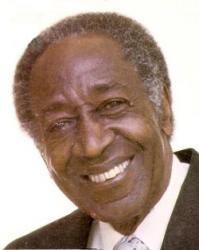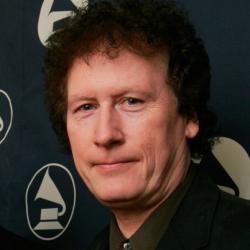Planning worship?
Check out our sister site, ZeteoSearch.org,
for 20+ additional resources related to your search.
- |
User Links
Person Results
‹ Return to hymnal






Export as CSV
Anonymous
Person Name: Anon. Hymnal Number: 22 Author of "I Will Sing unto the Lord" in Zion still Sings In some hymnals, the editors noted that a hymn's author is unknown to them, and so this artificial "person" entry is used to reflect that fact. Obviously, the hymns attributed to "Author Unknown" "Unknown" or "Anonymous" could have been written by many people over a span of many centuries.
Anonymous
Gloria Gaither

b. 1942 Hymnal Number: 86 Author of "The Glory of The Lord" in Zion still Sings Gloria Gaither (born March 4, 1942) is a Christian songwriter, author, speaker, editor, and academic. She is the wife of Bill Gaither and also sang in the Bill Gaither Trio, one of the most influential groups in recent Christian music.
She was born Gloria Lee Sickal in 1942 in Michigan, a daughter of pastor Lee Sickal and Dorothy Sickal. She spent most of her childhood and high school career in the Battle Creek area of Michigan, working a brief time for the Kellogg Company. When Sickal graduated from high school, she attended Anderson University in Anderson, Indiana. There, she triple majored in English, French, and Sociology. Upon her graduation, she took a job at Alexandria Monroe High School as a French teacher. There, she met Bill Gaither, who was teaching English at the time. She married Gaither in 1962, and they began writing songs recreationally. By the end of the 1960s, Gloria, Bill, and his brother Danny Gaither were touring steadily, as the Bill Gaither Trio.
After touring with the Bill Gaither Trio, Gaither drew her focus to the Gaither Homecoming series. She has been an active presence in every video production. Gaither is currently the scriptwriter and narrator for the Homecoming series. In 1991, she attended Ball State University and received a Master of Arts in Literature. She taught as an adjunct professor at Anderson University for periods in the late 80s and late 90s. In 1996, she spearheaded the creation of Gaither Family Reources in Alexandria, Indiana, and currently serves as co-owner and managing director. In 2002, Gaither launched Homecoming:
Gloria Gaither
Bill Gaither
b. 1936 Person Name: William Gaither Hymnal Number: 86 Author of "The Glory of The Lord" in Zion still Sings
Bill Gaither
John Wesley

1703 - 1791 Hymnal Number: 95 Author (attributed to) of "Rule of Life" in Zion still Sings John Wesley, the son of Samuel, and brother of Charles Wesley, was born at Epworth, June 17, 1703. He was educated at the Charterhouse, London, and at Christ Church, Oxford. He became a Fellow of Lincoln College, Oxford, and graduated M.A. in 1726. At Oxford, he was one of the small band consisting of George Whitefield, Hames Hervey, Charles Wesley, and a few others, who were even then known for their piety; they were deridingly called "Methodists." After his ordination he went, in 1735, on a mission to Georgia. The mission was not successful, and he returned to England in 1738. From that time, his life was one of great labour, preaching the Gospel, and publishing his commentaries and other theological works. He died in London, in 1791, in his eighty-eighth year. His prose works are very numerous, but he did not write many useful hymns. It is to him, however, and not to his brother Charles, that we are indebted for the translations from the German.
--Annotations of the Hymnal, Charles Hutchins, M.A., 1872
======================
John Wesley, M.A., was born at Epworth Rectory in 1703, and, like the rest of the family, received his early education from his mother. He narrowly escaped perishing in the fire which destroyed the rectory house in 1709, and his deliverance made a life-long impression upon him. In 1714 he was nominated on the foundation of Charterhouse by his father's patron, the Duke of Buckingham, and remained at that school until 1720, when he went up, with a scholarship, from Charterhouse to Christ Church, Oxford. Having taken his degree, he received Holy Orders from the Bishop of Oxford (Dr. Potter) in 1725. In 1726 he was elected Fellow of Lincoln College, and remained at Oxford until 1727, when he returned into Lincolnshire to assist his father as curate at Epworth and Wroot. In 1729 he was summoned back to Oxford by his firm friend, Dr. Morley, Rector of Lincoln, to assist in the College tuition. There he found already established the little band of "Oxford Methodists" who immediately placed themselves under his direction. In 1735 he went, as a Missionary of the Society for the Propagation of the Gospel, to Georgia, where a new colony had been founded under the governorship of General Oglethorpe. On his voyage out he was deeply impressed with the piety and Christian courage of some German fellow travellers, Moravians. During his short ministry in Georgia he met with many discouragements, and returned home saddened and dissatisfied both with himself and his work; but in London he again fell in with the Moravians, especially with Peter Bohler; and one memorable night (May 24, 1738) he went to a meeting in Aldersgate Street, where some one was reading Luther's preface to the Epistle to the Romans. There, "About a quarter before nine, while he was describing the change which God works in the heart through faith in Christ, I felt my heart strangely warmed. I felt I did trust in Christ, Christ alone, for salvation; and an assurance was given me, that He had taken away my sins, even mine, and saved me from the law of sin and death." From that moment his future course was sealed; and for more than half a century he laboured, through evil report and good report, to spread what he believed to be the everlasting Gospel, travelling more miles, preaching more sermons, publishing more books of a practical sort, and making more converts than any man of his day, or perhaps of any day, and dying at last, March 2, 1791, in harness, at the patriarchal age of 88.
The popular conception of the division of labour between the two brothers in the Revival, is that John was the preacher, and Charles the hymnwriter. But this is not strictly accurate. On the one hand Charles was also a great preacher, second only to his brother and George Whitefield in the effects which he produced. On the other hand, John by no means relegated to Charles the exclusive task of supplying the people with their hymns. John Wesley was not the sort of man to depute any part of his work entirely to another: and this part was, in his opinion, one of vital importance. With that wonderful instinct for gauging the popular mind, which was one element in his success, he saw at once that hymns might be utilized, not only for raising the devotion, but also for instructing, and establishing the faith of his disciples. He intended the hymns to be not merely a constituent part of public worship, but also a kind of creed in verse. They were to be "a body of experimental and practical divinity." "In what other publication," he asks in his Preface to the Wesleyan Hymn Book, 1780 (Preface, Oct. 20,1779), "have you so distinct and full an account of Scriptural Christianity; such a declaration of the heights and depths of religion, speculative and practical; so strong cautions against the most plausible errors, particularly those now most prevalent; and so clear directions for making your calling and election sure; for perfecting holiness in the fear of God?" The part which he actually took in writing the hymns, it is not easy to ascertain; but it is certain that more than thirty translations from the German, French and Spanish (chiefly from the German) were exclusively his; and there are some original hymns, admittedly his composition, which are not unworthy to stand by the side of his brother's. His translations from the German especially have had a wide circulation. Although somewhat free as translations they embody the fire and energy of the originals.
It has been the common practice, however for a hundred years or more to ascribe all translations from the German to John Wesley, as he only of the two brothers knew that language; and to assign to Charles Wesley all the original hymns except such as are traceable to John Wesley through his Journals and other works.
The list of 482 original hymns by John and Charles Wesley listed in this Dictionary of Hymnology have formed an important part of Methodist hymnody and show the enormous influence of the Wesleys on the English hymnody of the nineteenth century.
-- Excerpts from John Julian, Dictionary of Hymnology (1907)
===================
See also in:
Hymn Writers of the Church
John Wesley
F. L. Eiland

1860 - 1909 Hymnal Number: 154 Composer of "UNCHANGING HAND" in Zion still Sings Franklin L. Eiland was born in Noxubee county, Miss., March 25, 1860. He was reared on the farm and attended the old field school. The
school house on the hill and the old Oaken Bucket, etc., etc., were objects of interest in his curriculum. He had traveled some before finally leaving home including a trip to Tx, but in 1882 he came to Tx to remain. November 13, 1884 he married Miss Mary E. Nisbett of Robertson county. She lived nine years. In 1894 he married Miss Ella May Kennedy of Van Zandt county. She lived only 10 days. October 21, 1896 he married Miss Minnie Jarushia Valentine of McLennan county. She still survives. They have one sweet little daughter, Mary Ella Oree. She is quite bright and is already starting music at the age of three. Little Elva Lynn came Sept. 16, 1901 and God took her
Aug. 9, 1902. The Eilands have been farmers and professional men along many lines, but Prof. Eiland was the only one that ever embarked in the music business. He was inclined to music from a child and appropriated all the advantages in this line that came his way. Many things of minor importance happened along his life but in 1884 he fell into a meeting conducted by Maj. W. E. Penn, and the superior music rendered there awaked all his latent talent and set him on fire with a desire to make a musician. He at once began a musical career that has attained an abundant success. He soon began teaching and continuing to study to became a composer. He sought the association of those who could teach him and in this and other ways has enjoyed advantages of the best talent to be found. In 1893 he began publishing. From this, came in due time The Trio Music Co. now operated in Waco. Prof. E. is president of the company and editor in chief of the journal. He moved later to Myrtle Springs to secure the benefit of the wonderful waters of those springs. He is given great credit for good influence wielded for his church and community.
From "The Southland", Vol. XII. No. 1, Waco Tx
F. L. Eiland
Evelyn Simpson-Curenton

b. 1953 Person Name: Evelyn Simpson-Currenton Hymnal Number: 62 Arranger of "WE'LL WALK IN THE LIGHT" in Zion still Sings Evelyn Simpson Curenton (born 1953) is a leading African-American composer, pianist, organist, and vocalist.
Simpson Curenton began piano lessons at age 5, began to perform with the Singing Simpsons of Philadelphia, a family group, and earned a B.M., Music Education and Voice from Temple University.
She has been commissioned to write works for the American Guild of Organists, George Shirley, the late Duke Ellington, and her sister, the late Joy Simpson, arranged music for Kathleen Battle, Jessye Norman, and the Porgy and Bess Chorus of the New York Metropolitan Opera, and has performed with musical organizations such as Philadelphia's National Opera Ebony (later renamed Opera North).
Based in the Washington, D.C., area, Curenton is Music Director of the Washington Performing Arts Society's Men and Women of the Gospel and an associate of the Smithsonian Institution. She has given lectures and participated in workshops on early 18th-century black religious music and the music of African-Americans during the Civil Rights era.
--en.wikipedia.org
Evelyn Simpson-Curenton
Robert J. Fryson
Person Name: Dr. Robert J. Fryson Hymnal Number: 25 Author of "Glorious Is the Name of Jesus" in Zion still Sings
Robert J. Fryson
Cleavant Derricks

1910 - 1977 Hymnal Number: 163 Author of "Just a Little Talk with Jesus" in Zion still Sings
Cleavant Derricks
Randy Scruggs

Hymnal Number: 165 Author of "Sanctuary" in Zion still Sings Randy Lynn Scruggs (born August 3, 1953 in Nashville, Tennessee) is a music producer, songwriter and guitarist. He had his first recording at the age of 13. He has won a Grammy Award and was twice named "Musician of the Year" at the Country Music Association Awards. He is the middle son of Earl Scruggs.
As a songwriter, Scruggs's credits include "We Danced Anyway", "Love Don't Care (Whose Heart It Breaks)", "Love Has No Right", "Don't Make It Easy for Me", "Chance of Lovin' You", and "Angel in Disguise".
Scruggs has worked with many artists, including Michael Card, The Talbot Brothers, Waylon Jennings, George Strait and Emmylou Harris. His career dates back to the 1970 with the release of All the Way Home, a collaboration with his older brother Gary. Scruggs recorded his debut solo LP, Crown of Jewels, in 1998.
In 1994, Scruggs teamed up with Earl Scruggs and Doc Watson to contribute the song "Keep on the Sunny Side" to the AIDS benefit album Red Hot + Country produced by the Red Hot Organization.
----en.wikipedia.org/wiki
Randy Scruggs


 My Starred Hymns
My Starred Hymns


